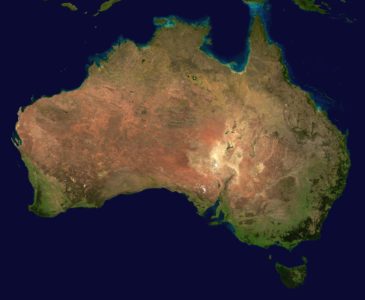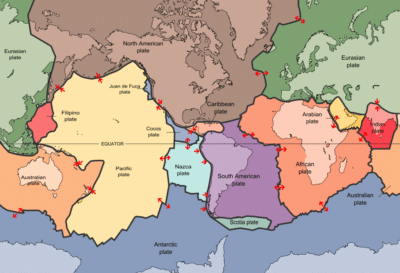Anyone who passed seventh grade could probably tell you that all the continents on Earth are not as stable as they seem. In reality, there are several tectonic plates which sort of move around on top of the upper mantle of the planet. That’s basic science. But, what most people probably haven’t considered is how that effects your GPS coordinates.
According to the National Geographic and the New York Times, Australia is actually moving around at such a rapid pace that the coordinates need to be adjusted before the end of the year. Since the last adjustment in 1994, the continent has moved 4.9 feet. That might not sound like a lot, but with more and more companies investing in precision GPS satellites that use that information, five feet is a big deal.
Of course, this is not exactly a new adjustment, nor is it the largest of such adjustments that have been made. Australia has undergone four corrections to latitude and longitude in the last 50 years, and the last adjustment was for a whopping 656 feet. While four feet will put the delivery truck at your neighbor’s house, 650 feet might not even get them on the right street.
From what the Times reports, Australia has been moving about 2.7 inches per year in a northerly direction, with a slight clockwise rotation. By contrast, the North American plate moves about an inch a year, and the Pacific plate moves three to four inches a year.
At the moment, this isn’t really a huge problem as consumer-grade GPS is not accurate to more than a few feet, so honestly, that 5 foot difference really isn’t going to be noticed by the majority of users. However, the next generation of GPS devices are expected to be accurate down to a few inches, and self-driving cars have to have accurate measurements.
Of course, adjusting for the drifting is really only a temporary fix. No matter what else happens, the continents will all continue to move, and as GPS technology improves and becomes more readily available, mapping errors may become more common. It’s possible, I would think, for some sort of algorithm to be calculated in order to compensate for this drift, as moving everything manually every couple years for down-to-the-inch GPS devices will quickly become a waste of resources.
While it might be a little thing in the grand scheme, as self-driving cars, GPS-controlled farming equipment, and even drone delivery become more and more common, this problem is going to have to be addressed.


